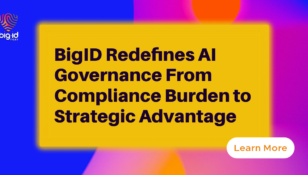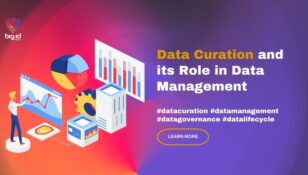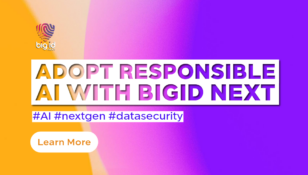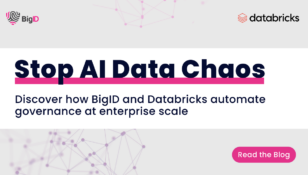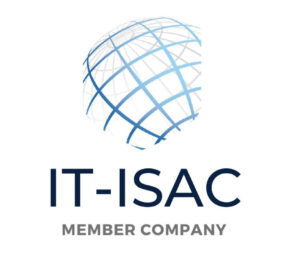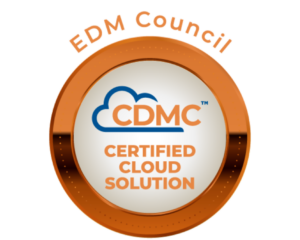Cloud Data Governance: Overview and Best Practices
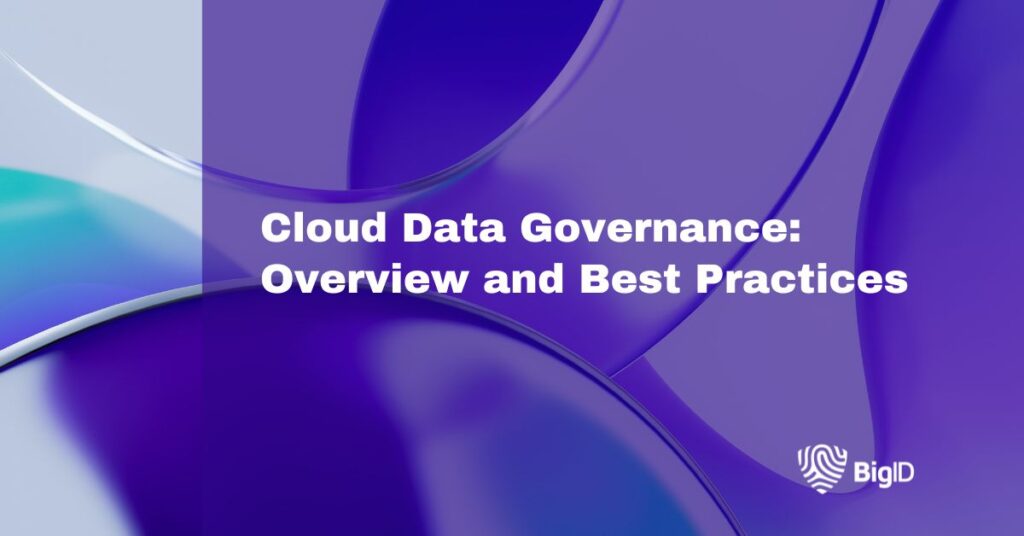
What is cloud data governance?
Cloud data governance involves managing the accessibility, functionality, accuracy, and protection of data stored in the cloud. This includes establishing policies, procedures, and standards to guarantee that data is well-managed throughout the organization.
Why is cloud data governance important?
In a business context, cloud data governance is important for several reasons:
- Compliance: Many organizations are subject to regulatory requirements regarding data privacy and security. Cloud data governance helps ensure compliance with these regulations by providing controls over data access, use, and sharing.
- Risk management: Cloud data governance helps mitigate risks associated with data breaches, data loss, and unauthorized access to sensitive information. By establishing policies and controls around data management, organizations can reduce the likelihood of these incidents occurring.
- Data quality: Effective cloud data governance also helps ensure the accuracy and consistency of data. By establishing standards for data quality and enforcing them consistently, organizations can improve the reliability of their data and reduce errors.
- Collaboration: Cloud data governance can facilitate collaboration across different departments and business units within an organization. By establishing a common framework for data management, teams can work together more effectively and efficiently.
Cloud data governance is essential for ensuring that organizations can make informed decisions based on accurate and reliable data, while also managing risks associated with data management in the cloud.
7 principles of cloud data governance
- Accountability: The principle of accountability means that individuals and teams within an organization are responsible for managing data effectively and in compliance with policies and regulations.
- Transparency: Transparency means that policies, procedures, and guidelines around data management are clearly defined and communicated to all relevant stakeholders.
- Accessibility: Data should be accessible to those who need it, while also ensuring that access is appropriately restricted to protect sensitive information.
- Integrity: Data integrity means that data is accurate, consistent, and reliable, and that appropriate controls are in place to ensure its quality.
- Security: Data security involves protecting data from unauthorized access, use, disclosure, or destruction, through measures such as access controls, encryption, and data backup and recovery.
- Compliance: Compliance with regulatory requirements and industry standards is essential for ensuring that data is managed appropriately and that organizations avoid legal or financial penalties.
- Collaboration: Collaboration across teams and departments is important for ensuring that data is managed consistently and effectively across the organization.
These principles are not exhaustive, and there may be other principles or sub-principles that are relevant to specific organizations or industries. However, by adhering to these key principles, organizations can establish a solid foundation for effective cloud data governance.
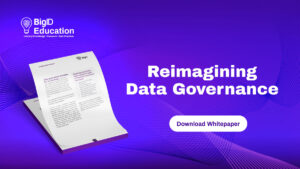
Cloud data governance challenges
The following are just a few of the challenges that organizations may face when implementing cloud data governance. However, by identifying and addressing these challenges, organizations can establish a strong foundation for effective data governance in the cloud.
- Data complexity: The increasing volume, variety, and velocity of data can make it difficult to manage and govern effectively. In the cloud, data may be spread across multiple systems, platforms, and locations, making it even more challenging to maintain control and visibility over data.
- Data quality: Ensuring the accuracy, consistency, and completeness of data is critical for effective decision-making, but it can be difficult to achieve in the cloud. Data may be sourced from multiple systems, platforms, and sources, and may be subject to errors, duplication, or inconsistencies.
- Data privacy and security: Storing data in the cloud can create additional risks related to data privacy and security. Organizations must ensure that appropriate controls and safeguards are in place to protect data from unauthorized access, use, or disclosure.
- Compliance: Meeting regulatory requirements and industry standards can be challenging, particularly in the cloud where data may be stored in multiple locations and subject to different legal and regulatory requirements.
- Organizational complexity: Managing data governance effectively often requires collaboration across different teams and departments within an organization. This can be challenging, particularly in larger organizations or those with complex structures.
- Technical complexity: The cloud environment can be complex, with multiple systems, platforms, and tools to manage. This can make it difficult to establish consistent data governance policies and procedures across the organization.
- Data ownership: Determining who owns the data and who is responsible for managing it can be challenging, particularly in complex organizational structures or where data is shared across multiple departments or teams.
Cloud data governance vs compliance
While cloud data governance and compliance are different, they are closely related. Effective cloud data governance can help organizations meet compliance requirements by ensuring that data is managed in a way that is consistent with regulations and standards. Compliance requirements can also inform cloud data governance policies and procedures, helping organizations to establish appropriate controls and safeguards for data management.
Cloud data governance refers to the process of managing the availability, usability, integrity, and security of data stored in the cloud. It involves defining policies, procedures, and guidelines to ensure that data is managed effectively and efficiently across the organization. Cloud data governance is focused on the overall management of data within an organization, including its quality, security, and accessibility.
Compliance, on the other hand, refers to the process of ensuring that an organization meets specific legal, regulatory, or industry requirements. Compliance may include adhering to regulations such as HIPAA or GDPR, or complying with industry-specific standards such as PCI DSS or ISO 27001. Compliance is focused on meeting external requirements and standards, rather than on the internal management of data.
Streamline cloud data governance with BigID
Multi-cloud and hybrid cloud landscapes depend on efficient data stewardship— the kind tailored to the needs of your organization. BigID is a data intelligence platform for privacy, security, and governance that integrates advanced AI and machine learning to provide greater visibility and value from all your cloud data regardless of where it’s stored.
Discover all your enterprise data across cloud service providers like AWS, GCP, Azure and set appropriate guidelines and policies to responsibly govern and maximize the value of your data assets. BigID’s data governance suite includes intuitive tools like the Data Quality App that give you the power to monitor the consistency, accuracy, and validity of your cloud data all in one place. Reduce your data risk by implementing automated retention policies with the Data Retention App and set policies to automatically keep or discard the right data to maintain compliance.
To see how BigID can help you automate and achieve compliance for all your cloud data governance initiatives, schedule a 1:1 demo today.



